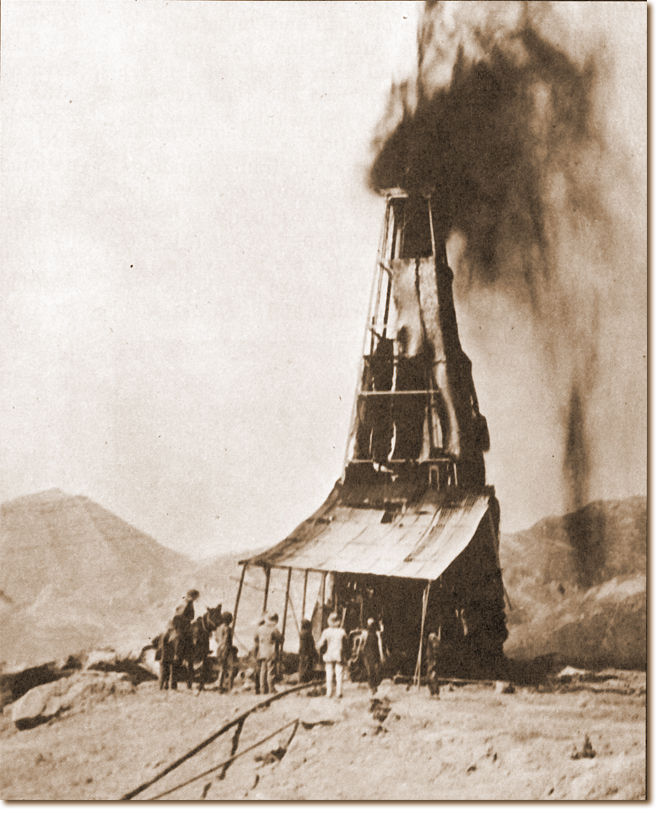|
|


|
|
In 1901 William Knox D'Arcy negotiated an oil concession with Mozaffar al-Din Shah Qajar of Persia. He financed this with capital he had made from his shares in the highly profitable Mount Morgan mine in Queensland, Australia. D'Arcy assumed exclusive rights to prospect for oil for 60 years in a vast tract of territory including most of Iran. In exchange the Shah received £20,000 (£2.0 million today), an equal amount in shares of D'Arcy's company, and a promise of 16% of future profits.
D'Arcy hired geologist George Bernard Reynolds to do the prospecting in the Iranian desert. Conditions were extremely harsh: "small pox raged, bandits and warlords ruled, water was all but unavailable, and temperatures often soared past 50°C". After several years of prospecting, D'Arcy's fortune dwindled away and he was forced to sell most of his rights to a Glasgow-based syndicate, the Burmah Oil Company. By 1908 having sunk more than £500,000 into their Persian venture and found no oil, D'Arcy and Burmah decided to abandon exploration in Iran. In early May 1908 they sent Reynolds a telegram telling him that they had run out of money and ordering him to "cease work, dismiss the staff, dismantle anything worth the cost of transporting to the coast for re-shipment, and come home." Reynolds delayed following these orders and in a stroke of luck, struck oil shortly after on May 26, 1908. |
Britain's Arabian Oil Empire Article
Armed Forces | Art and Culture | Articles | Biographies | Colonies | Discussion | Glossary | Home | Library | Links | Map Room | Sources and Media | Science and Technology | Search | Student Zone | Timelines | TV & Film | Wargames